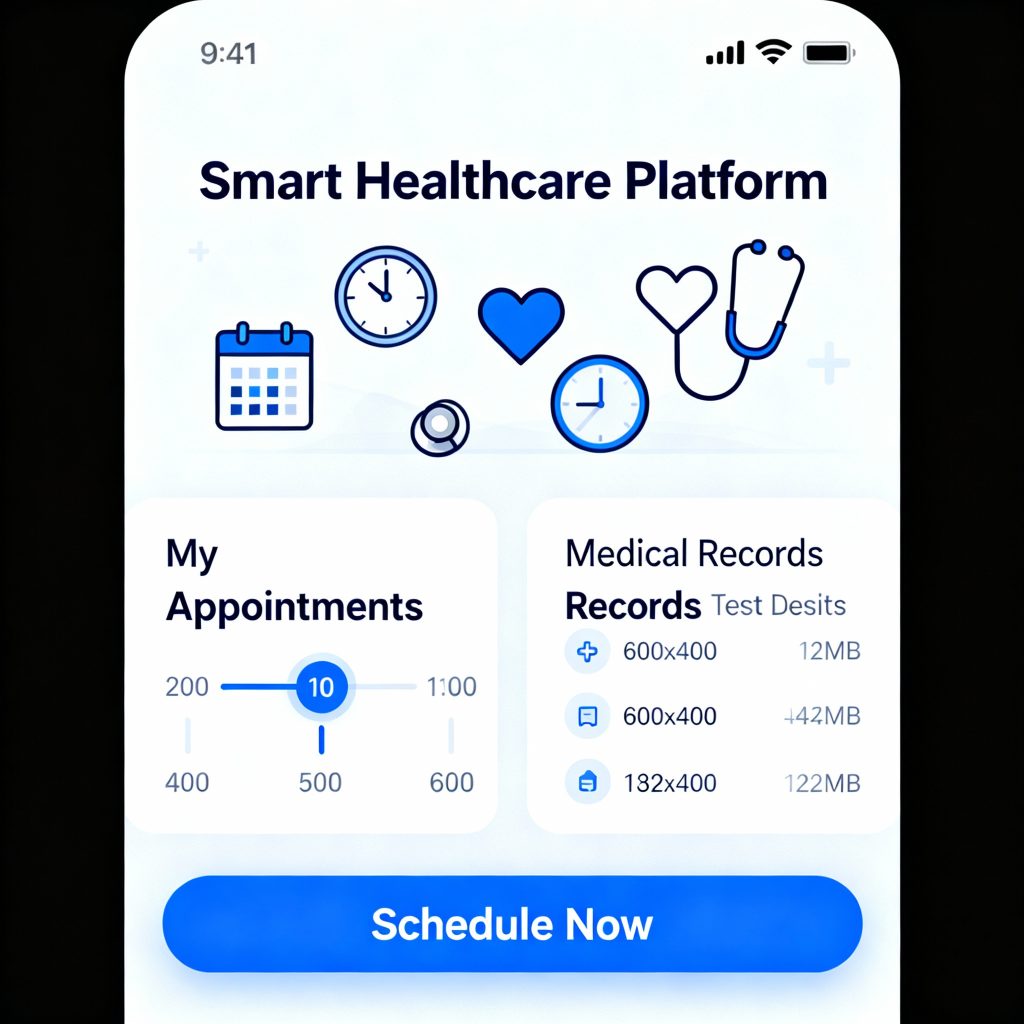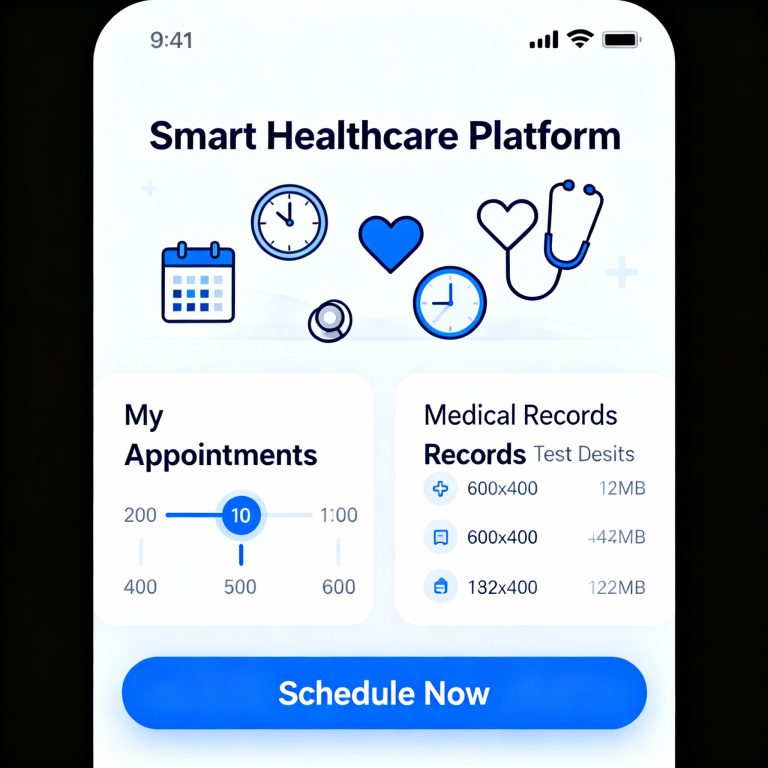The healthcare industry is evolving rapidly, and patients are no longer bound by the limitations of traditional systems. With the growing digitalization of healthcare, it has become incredibly easy to book doctor appointments online, manage health records, and even access consultations remotely. Modern tools such as medical consultation platforms, healthcare appointment apps, and medical record management apps are revolutionizing how people interact with healthcare professionals.
Moreover, these technologies ensure that patients receive timely care, doctors can efficiently manage their schedules, and hospitals can provide a seamless healthcare experience. Let’s explore how these digital solutions are reshaping healthcare accessibility and convenience.
The Shift Towards Online Healthcare Solutions
Over the years, people have started embracing the idea of managing their healthcare online. From ordering medicines to scheduling check-ups, everything is becoming digital. Now, with just a few taps, you can book doctor appointments online without waiting in long queues or making repeated phone calls.
Furthermore, these platforms have become a necessity rather than a luxury. The increasing demand for quick access to doctors and personalized medical services has made online healthcare an essential part of modern life. Patients, especially in urban areas, now prefer using a healthcare appointment app because it saves time, simplifies the process, and keeps everything organized.
Book Doctor Appointments Online — Convenience and Confidence
One of the most important benefits of being able to book doctor appointments online is the convenience it provides. Patients can easily choose their preferred doctors, check available time slots, and confirm appointments instantly.
Additionally, these platforms offer flexibility to reschedule or cancel appointments when required, avoiding unnecessary delays or miscommunication. With integrated notifications and reminders, patients never miss a consultation.
Another advantage is transparency. Online booking systems often display the doctor’s specialization, experience, ratings, and consultation fees. As a result, patients can make informed decisions and feel more confident about their healthcare choices.
The Rise of Medical Consultation Platforms
A medical consultation platform serves as a bridge between patients and healthcare providers. Through these platforms, people can access consultations with doctors, specialists, or therapists without leaving their homes.
Moreover, these platforms make healthcare accessible to individuals in remote or rural areas where hospitals or clinics may not be easily available. With secure video or chat consultations, patients can receive expert advice within minutes.
In addition, many medical consultation platforms allow patients to upload test results, prescriptions, and medical history. Therefore, doctors can provide more accurate advice, leading to better outcomes. This digital transformation is not just about convenience—it’s about ensuring quality healthcare for everyone, everywhere.
Benefits of Using a Healthcare Appointment App
A healthcare appointment app goes beyond basic scheduling. It acts as a complete healthcare assistant, managing appointments, reminders, and communication in one place.
For patients, this means instant access to their doctors and health updates. For doctors, it means improved time management and reduced administrative work.
Furthermore, these apps integrate multiple features like real-time booking, doctor availability tracking, digital payment options, and patient data storage. Consequently, both patients and healthcare providers benefit from a faster and more efficient process.
With continuous innovation, healthcare appointment apps are also being linked to wearable devices, allowing real-time monitoring of vital signs. This integration ensures that doctors can track patient health progress even after appointments, making the experience more holistic.

Managing Health Data with a Medical Record Management App
Data plays a vital role in healthcare. Traditionally, managing paper-based health records was not only time-consuming but also prone to loss or damage. Thankfully, the medical record management app has eliminated these challenges.
These apps securely store patient records, prescriptions, test reports, and other medical documents digitally. Moreover, they provide access to this information anytime and anywhere, allowing both doctors and patients to make informed decisions faster.
In addition, medical record management apps enhance communication between multiple healthcare professionals. For instance, if a patient is consulting different specialists, their records can be shared securely among them, ensuring continuity of care.
Beyond storage, these apps also allow patients to track their health patterns over time. As a result, users gain valuable insights into their progress and overall well-being.
Why Digital Health Platforms Are the Future of Doctor Appointments
As healthcare continues to evolve, digital transformation has become the foundation of modern medicine. The ability to book doctor appointments online, access medical consultation platforms, and manage data through medical record management apps makes healthcare more efficient, transparent, and accessible.
Moreover, these platforms save both time and resources. Hospitals can reduce operational costs, and doctors can focus more on patient care rather than administrative work. Patients, on the other hand, enjoy a hassle-free experience without long waiting times or misplaced reports.
Furthermore, as technology advances, features like AI-driven health analysis, personalized reminders, and predictive healthcare will become even more common. Thus, these digital solutions are paving the way for smarter, data-driven healthcare systems.
How Healthcare Providers Benefit
Healthcare professionals also gain tremendous advantages from using these systems. With healthcare appointment apps, they can efficiently handle bookings, patient communications, and cancellations. Additionally, access to real-time medical records improves the quality of diagnosis and treatment.
Hospitals can use analytics tools to study trends, understand patient needs, and optimize resources accordingly. Therefore, adopting such platforms not only boosts efficiency but also enhances patient trust and satisfaction.
Security and Privacy: A Top Priority
Since digital healthcare involves sensitive personal data, security is a top concern. Thankfully, most medical record management apps and medical consultation platforms use advanced encryption technologies to protect patient information.
Moreover, users can control who can view or share their records, maintaining full confidentiality. With regular security updates and strict privacy policies, these platforms are as safe as any modern banking system. Therefore, patients can trust their information to remain secure and private.
The Road Ahead
The future of digital healthcare looks promising. As people become more comfortable with online consultations and mobile apps, the demand for digital health tools will continue to rise. Furthermore, government initiatives supporting telemedicine and online healthcare services are driving even faster adoption in India and beyond.
With continuous innovation and awareness, soon everyone will prefer to book doctor appointments online and manage their entire healthcare journey through digital platforms. Hence, the combination of technology and healthcare will continue to improve people’s lives for years to come.
Conclusion: Doctor Appointments
In conclusion, the ability to book doctor appointments online, along with the support of medical consultation platforms, healthcare appointment apps, and medical record management apps, is transforming the healthcare landscape. These tools ensure that healthcare is not only convenient but also accessible, efficient, and secure.
As more patients and doctors adopt these technologies, the healthcare experience will become faster, smarter, and more personalized. Therefore, embracing these digital innovations today is the key to building a healthier, more connected tomorrow.

